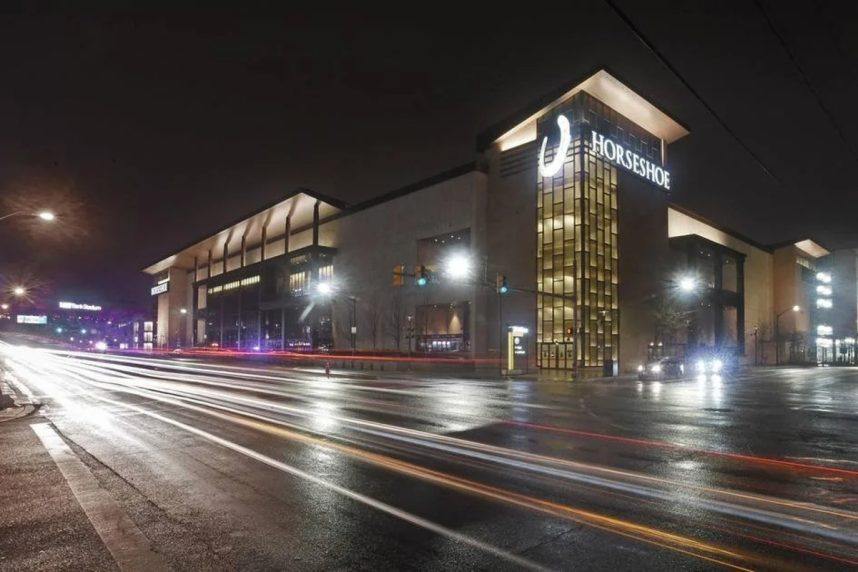Maryland Casino Struggles Persist, September Revenue Down Five Percent
Posted on: October 7, 2025, 08:15h.
Last updated on: October 7, 2025, 09:16h.
- Maryland casino revenue was down for a fourth consecutive month
- MGM National Harbor and Live! Casino Hotel were most responsible
- Horseshoe Baltimore is embarking on a comeback story
Maryland casino revenue continues to labor, as September marked the fourth consecutive month of gross gaming revenue (GGR) decline.

Maryland’s six casinos reported GGR of $151.5 million from their slot machines and live dealer table games. That revenue doesn’t include money won from sports betting.
The $151.5 million represents a 5% decline from September 2024, when the six properties won $159.5 million. September pushed the state’s 2026 fiscal year, which began July 1, down 3.1% through the first quarter.
Lower video lottery terminal and table game revenue means less money for the Maryland Education Trust Fund, the primary beneficiary of legalized casinos. The account used to finance public education received $46.8 million last month, $2,721,487 less than the account took in September 2024.
Market Leaders Struggles
Maryland’s top two revenue generators — MGM National Harbor and Live! Casino Hotel — were most responsible for September’s struggles. The longtime market leaders respectively posted GGR of $63.1 million (-5.6%) and $54.9 million (-7.8%).
Horseshoe Casino Baltimore, desperately in need of a ringer, got another one in September by seeing GGR climb 6.7% to $14 million. The nearby Baltimore Ravens hosted two games last month, including a blowout win against the Cleveland Browns and a “Monday Night Football” loss against the Detroit Lions.
September marked Horseshoe Baltimore’s sixth consecutive month of year-to-year GGR improvement. Caesars Entertainment continues to invest in the area to make the destination, located just south of the Ravens’ M&T Bank Stadium and Oriole Park at Camden Yards, more attractive.
The casino has also been welcoming more prominent acts and draws of late. Last month, Baltimore native Gabby Samone opened for R&B legend Eric Benet at the Horseshoe. And last Sunday, NBA legend Shaq turned DJ Diesel, hosted a Ravens afterparty at the casino.
Maryland is additionally home to three smaller resort-style casinos — Ocean Downs in Berlin, Hollywood Perryville, and Rocky Gap. They experienced mixed results.
While Rocky Gap grew GGR by 5.1% to $4.6 million, casino revenue slowed 4.6% at Hollywood to $6.3 million and by 3.8% at Ocean Downs to $8.4 million.
Legacy Gaming Blues
Maryland isn’t alone in seeing in-person casino revenue slow. Last year, Florida, Iowa, Mississippi, Missouri, Ohio, and Pennsylvania all saw legacy casino revenue, or money won from physical slots and tables, decline.
This year, the Las Vegas Strip’s struggles have dominated the US gaming industry. While gaming revenue has managed to stay afloat in the nation’s most critical casino asset, visitation has plummeted amid an array of economic and political trepidation.
Nonetheless, nationwide GGR continues to expand rapidly and make wonderful headlines for the industry and its representatives, including the American Gaming Association. The incessant growth has been largely due to seven states where iGaming is allowed and the continued embrace of mobile sports betting.
Commercial gaming win reached $71.9 billion in 2024 — an 8% change. Sports betting GGR was up 16.5% and iGaming almost 30%. Meanwhile, in-person casino revenue climbed only 2%.
Last Comment ( 1 )
In Pennsylvania, there is only one future brick-and-mortar casino now under construction. The locally unwanted Happy Valley Casino in State College plans to open in Spring 2026. At first they announced the grand opening was planned for April, but since summer doesn't begin until after mid-June, they decided to just say "Spring." "Yeah, that'll work." The casino is just four miles away from Penn State's main campus and it was been strongly opposed by the Happy Valley community since September 2020. Do the math. Long story short (kinda late for that) the yet-to-open casino can expect to see the similar declining month-to-month casino revenue that is described above. Why else would the winning bidder and casino developer (Ira Lubert) already plan to pass off a 60% majority interest in his unwanted casino to Saratoga Casino Holdings of New York State? Nobody does that more than six months prior to the ribbon-cutting ceremony. See SayNoCasino org to see it all explained in perhaps more detail than you can imagine.